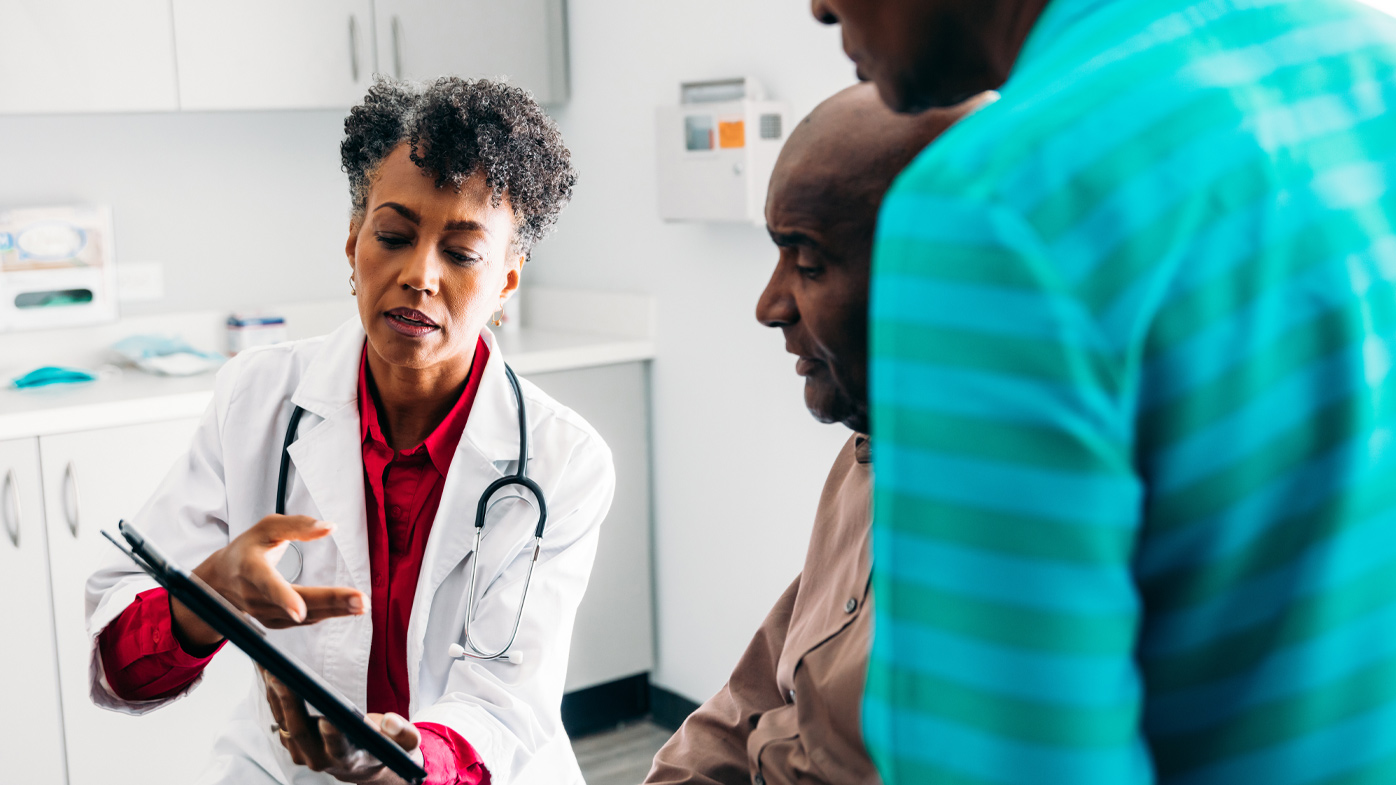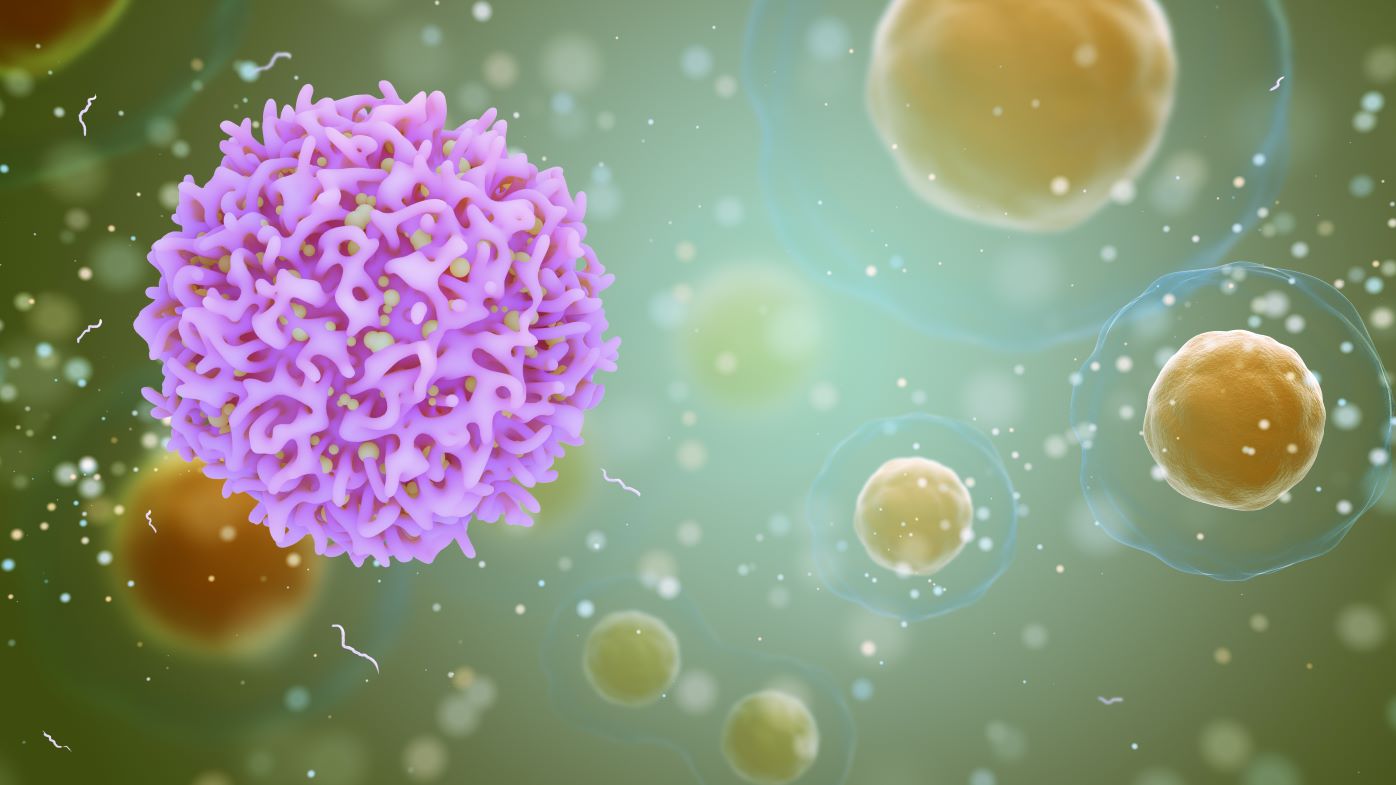
Patient with blood cancer discussing needs with health care provider.
Each September during Blood Cancer Awareness Month, we recognize the more than 1.3 million people in the U.S. living with or in remission from a form of blood cancer.
Blood cancers are a diverse group of diseases, with more than 100 types of lymphoma, leukemia, multiple myeloma, myeloproliferative neoplasms (MPN) and myelodysplastic syndromes (MDS). While this is a time to reflect on the extraordinary advances science has made in recent years in the treatment of these diseases, blood cancers continue to account for more than 10% of all new cancer diagnoses each year.
Now more than ever, these numbers may also be increasing on account of the barriers to care the COVID-19 pandemic has created. People may be delaying routine blood work and checkups, allowing for certain cancers to go undetected, or for diseases to progress to more advanced stages – ultimately worsening prognosis and patient outcomes. Unfortunately, the pandemic has also caused disruptions in clinical trials. The National Cancer Institute has estimated that enrollment in cancer clinical trials has declined since the start of the pandemic, creating delays in clinical research activities.



